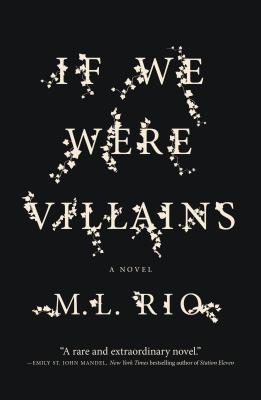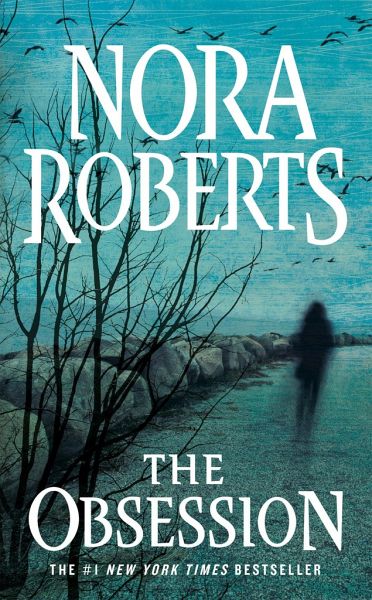Overview
Per aspera ad astera. Through the thorns, to the stars
-Rio 35
If We Were Villains by M.L. Rio is about a group of seven Shakespearean actors in their senior year at Dellecher Classical Conservatory, the most renowned university for Shakespearean theater. The seven are the only remaining members of their class, as students are cut from the program every year with no remorse or warning, drawing the seven closer together. Tensions build between the characters as Richard spirals out of control, until the morning after a Halloween performance of Macbeth when Richard is found dead. The remaining six stick together as the police question them, desperate to get to the bottom of the mystery. Reading this book, I felt the suspense building with Richard’s spiral, the desperation Oliver experiences, the comfort the characters find in Shakespeare and in acting, and the tension between them all.
Theater Characters
A good Shakespeare actor – a good actor of any stripe, really – doesn’t just say the words, he feels them. We felt all the passions of the characters we played as if they were our own. But a character’s emotions don’t cancel out an actor’s – instead you feel both at once. Imagine having all your own thoughts and feelings tangled up with the thoughts and feelings of a whole other person. It can be hard, sometimes, to sort out which is which.
-Rio 249
I would love to experience this book without being a theater kid, because as a theater kid, it’s an easy five stars. I have known all of the characters that are present here, making it easy for me to connect to them. The characters were cast as certain roles their freshman year, and seem to have morphed into them in their daily lives as well. Richard is the leading man, Meredith is the love interest, James is the fool, etc. This distinction between characters makes them stand out and easy to identify. They are individuals that are unique to the story, but after playing a role for so long, they’ve started to blend into that role in their daily lives as well.
The book is broken down into 5 acts, with each chapter being titled as a scene, as it would be in a script. The dialogue also follows the script format when they are performing a play. Rio grounds the reader in the world of theater in every facet of this book. It relatively easy to remember who is playing what part, as the roles line up with what the audience has seen of the characters elsewhere in the book. Rio walks a fine line with this character definition, but it is one that she pulls off with grace.
At one point in the novel, Meredith tells Oliver “And you’re real. You’re the only one of us who isn’t acting all the time, who isn’t just playing whatever part Gwendolyn gave you three years ago” (Rio 224). Gwendolyn is one of the directors at Dellecher, and assigned all of the characters one role to play forever. Because of Meredith’s distinction, Oliver makes a compelling narrator. Throughout the novel, he is the only character who isn’t acting solely as his prescribed character. In scenes where they are not acting, Oliver is the least like his assigned character, giving him the most dynamic experience to follow over the course of the story.
Theater Programs
Everyone seems to remember it differently/…everyone experienced it differently, I think.
-Rio 268
The thing about Dellecher is that despite how messed up the program is, it’s hard to disagree with what the main characters are doing. The program weeds people out every year, until there are only a handful left, as seen by there only being seven people remaining in the main character’s grade. The characters pay an exuberant amount of money to experience the disdain and humiliation of the directors, and yet they all stay because Dellecher is the best for Shakespeare actors. A degree from Dellecher essentially guarantees future employment. Knowing how harsh the acting world is and how hard it is to break in and find one’s footing, it is hard to blame the characters for staying in order to pursue their dreams.
There is a scene in the novel which one of the directors asks Meredith to dive into her insecurities and use them in a scene at 9am by standing in front of everyone and listing off her least favorite things about herself. The scene is upsetting, but it isn’t anything incredibly shocking to theater kids. I once was asked to decide what word describes my character, what animal she would be, and then what instrument she would be. The cast then had to run across stage like that animal, saying their word like their instrument. To this day, I don’t get the point of the exercise as a whole.
It is easy to empathize with these characters, because as a theater kid, I understand them. It’s easy to say that they should drop out or push back against their directors for the things that happen to them, but it’s hard to argue with them staying. Anyone involved in theater is involved in theater because they love it. If you want to make it in the theater world, you have to give up everything else. Going through four rough years to have guaranteed employment afterwards is a choice that most theater kids would make out of love for their craft.
I think that a lot of the scenes in If We Were Villains could make people uncomfortable. Between the contact between characters, the tension between them, the things that occur onstage and in rehearsal or class, it’s a lot of crazy things that aren’t normal. But as a theater kid, I get it, I’ve been there, I’ve experienced this. Despite this, it is a comfort to me.
Moral Omniscience
Whatever we did – or, more crucially, did not do – it seemed that so long as we did it together, our individual sins might be abated. There is no comfort like complicity
-Rio 154
There is no moral omniscience in this book. The main characters find Richard drowning in the lake with extensive injuries, and eventually decide to let Richard die. They could have saved him, but they watch as he drowns. They do not know who killed him, but they know that Richard is a bad person. Objectively, they should have pulled him out of the water to save him. However, in the weeks leading up to his death, he was getting angrier and angrier, and became increasingly aggressive towards all of his friends.
During a production of Julius Caesar, Richard grabs Meredith and shakes her, then throws her down the stairs on opening night. This is not in the blocking, and Meredith legitimately falls down a flight of stairs due to his actions. He also clocks Oliver in the ear during the assassination scene, something that he is not supposed to do. It was planned for Oliver to “stab” Richard and for him to “die” immediately, delivering one last line and falling to the floor. Instead, he swings at Oliver and injures him. Dellecher does a Halloween performance of Macbeth every year, but the professors shake up the cast by casting James as Macbeth instead of Richard. Richard is instead cast as an Apparition, a minor role in the play. Feeling slighted, he attempts to drown James in front of the audience during the show. The other characters have to intervene to pull them apart, but it is clear that Richard doesn’t regret his actions.
With all of this in mind, it is hard to say that the character should have saved his life, given that he’s nearly killed most of them and verbally threatened nearly everyone else. It is hard to say what is right and what is wrong in this scene. At the end of the book, it is revealed that James killed Richard. It was an accident, but he did it and left him all the same. Oliver takes the fall, admitting to the crime despite his innocence, because he is in love with James. Again, while arguably not the “right” choice, it is hard to argue with a character taking drastic actions for the one that they love. It’s a very Shakespearean dilemma.
The characters refuse to give each other up to the police. None of them know who did it, but they all stand together. Being a theater kid is about protecting castmates and friends as if they were your own family. Theater kids are asked to do insane things by their directors relatively frequently. In a high school production of Joseph and the Amazing Technicolor Dream Coat, there is a scene where Joseph is accosted by a mob of fangirls. Our director pushed the (mostly underaged) cast to legitimately run across stage and grab onto my friend who was playing Joseph, while insinuating that in adult productions of the show, the scene is more sexual. Pretty much no one was comfortable with that, including my friend who was playing Joseph, and especially my Freshmen who were having their first theater experience. My friend and I talked about what to do, and I wound up running across stage to be the first one to “Joseph”, and would jump into his arms so that everyone else didn’t have to be so all over him. With him holding me bridal style, that severely limited what other people could do in terms of being all over him, and our director luckily loved it.
While I haven’t committed any murders in theater, I understand how the characters went as far as they did to protect each other. People always want to protect their friends, but theater brings people even closer together through those shared (traumatic) experiences.
No one in the novel liked Richard when he was alive, but after he is gone, he leaves a hole that no one knows how to fill. Meredith says that “Richard wasn’t an easy person to like. But he was an easy person to love” (Rio 181). In theater and life, there are always people that you’ll like and people you don’t. While I can’t speak to the murder aspect of Richard’s story, there are a lot of people in theater that you may not like, but still feel their absences and miss them once they leave the program.
There is a lot of moral omniscience involved with Richard’s character and his eventual demise. At the end of the day, theater kids tend to stick together to protect their own.
Shakespearean Tragedy
Do you blame Shakespeare for any of it?
I blame him for all of it.
-Rio, 248
If the reader reads the blurb on the back of the book, they know that something terrible is going to happen. Narratively speaking, it is becomes relatively obvious that Richard is going to die early on. The tragedy of the book lies in the fact that the end is clear. Someone will die, and the rest will have to live on. A lot of this novel is very Shakespearean, and reflects the character’s passions and story arcs. The characters speak to each other in Shakespearean passages, sending secret messages and thinking as their characters think, adding another layer of complexity that intrigues the reader.
The book ends with Oliver receiving James’s suicide note. It says that he drowned himself in the river, but Oliver knows that the police have dredged up every inch of the river, and yet no body was found. When reading the note, Oliver notices that the passage that James has selected to include is one from a Shakespearean character who fakes their suicide and starts a new life. This is a message directly for Oliver, telling him that James is still alive and that he has a chance of finding him and finally getting a chance to start their life together. To me, a lot of the joy of this novel comes from how Shakespearean the story is through every interaction. It’s an amazing work of “life imitates art” that Rio has masterfully composed.
Works Cited
Experiences Glossary – Story & The Brain. https://unewhavendh.org/story-and-the-brain/experiences-glossary/. Accessed 2 Feb. 2025.
Rio, M.L. If We Were Villains. New York, Flatiron Book, 2017.
Technologies by Element of Narrative – Story & The Brain. https://unewhavendh.org/story-and-the-brain/technologies-by-element-of-narrative/. Accessed 2 Feb. 2025




